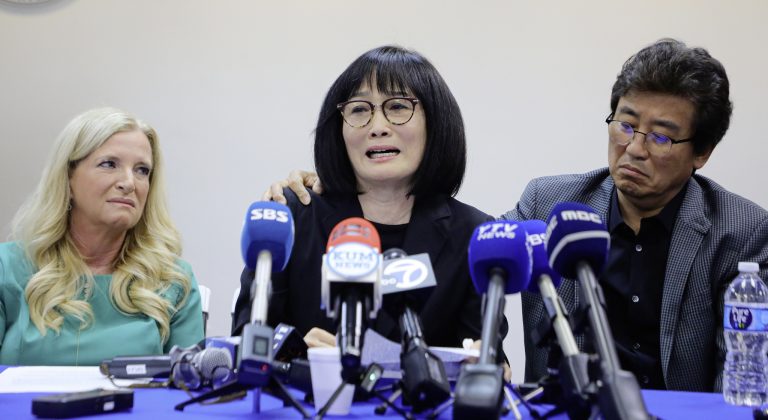On May 2, Yong Yang, a 40-year-old Korean-American man with mental illness, was fatally shot by police at his parents’ home in Koreatown, Los Angeles.
The incident unfolded in the presence of Department of Mental Health officials, who were there to transport Yang to a hospital, leaving the family devastated. A DMH clinician had called the police for assistance in transporting Yang, resulting in the deployment of nine officers.
With numerous law-enforcement and mental-health personnel on site, the decision to use firearms has sparked significant controversy. The Korean-American community views the shooting as a gross overreaction.

The medical examiner listed “multiple gunshot wounds” as the cause of death. The police defended their actions, citing a tense situation with Yang allegedly wielding a knife – a claim they supported by stating that they had collected the knife as evidence. The family vehemently disputes this, saying they did not see Yang with a knife and no knives were missing from their home.
The police claimed that they repeatedly tried to coax Yang out of the house, a stark contrast to the family’s account of hearing gunshots and Yang’s screams just two and a half minutes after the officers entered. These discrepancies highlight the need for the release of the bodycam footage from the responding officers.
The family argues that the police, summoned to assist in medical transport, improperly treated the situation as a criminal confrontation. Min Yang, the victim’s father, lamented, “If we asked for help transporting a mentally ill patient and they responded as if they were subduing a criminal, who would ever request police assistance for their sick child again?”
Police protocol restricts firearm use to situations where an officer’s life or the lives of others are at immediate risk of serious injury. However, the circumstances of this incident cast doubt on whether the officers genuinely perceived a life-threatening danger. The problem of excessive force remains a persistent issue within law enforcement.
One high-profile case in California involved Michael Cho, 25. On December 31, 2007, police responded to reports of a person with a weapon in La Habra and fatally shot Cho, who was actually holding a crowbar. The Korean-American community accused the police of overreacting, leading to a candlelight vigil and a wrongful death lawsuit against the city, which settled for $250,000.
Sixteen years later, little has changed. Following Yong Yang’s death, seventeen Korean-American organizations have called on LA Mayor Karen Bass and LAPD Chief Dominic Choi for a thorough investigation, transparent disclosure of findings, and proactive measures to prevent similar tragedies.
The ongoing LAPD investigation must be thorough and transparent to prevent any perception of a cover-up. Should officers be found to have violated their protocols, they must face severe consequences. The primary duty of the police is to protect the lives and property of citizens – a principle that must be diligently upheld.
By Mooyoung Lee lee.mooyoung@koreadaily.com


![Hangar images indicate North Korean advances in military drone domain Satellite photos taken on March 28, included in Beyond Parallel's report on North Korea, shows what appears to be seven new drone hangars at the Banghyon Air Base. [SCREEN CATPURE]](https://www.koreadailyus.com/wp-content/uploads/2025/04/0402-Hangar-100x70.jpg)

![Deeper-I, Efinix sign deal to develop world’s first AI-FPGA single-chip solution Ikuo Nakanishi, left, vice president of sales at Efinix and Lee Sanghun, right, CEO of Deep-I pose for a photo after signing MOU on March 26. [Provided by Deeper-I]](https://www.koreadailyus.com/wp-content/uploads/2025/04/0401-DeeperI-100x70.png)